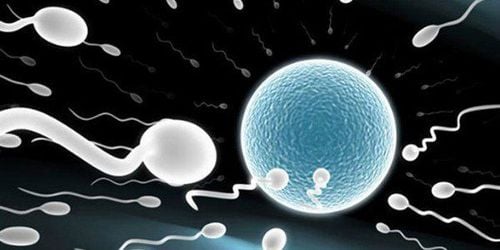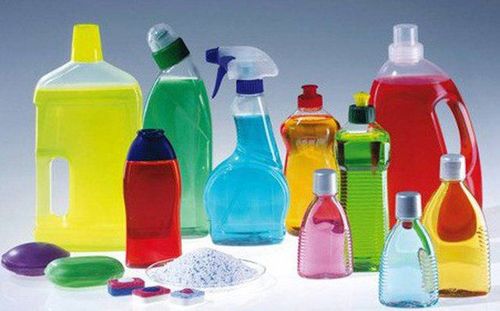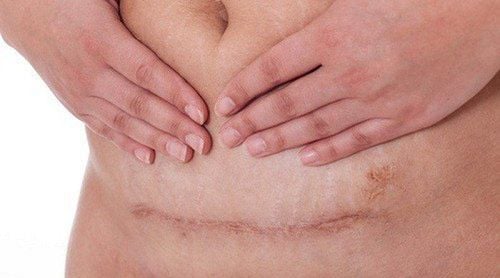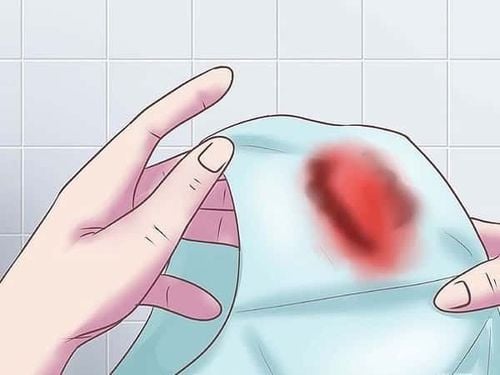This is an automatically translated article.
People are tending to replace conventional cleaning products with natural products due to concerns about unhealthy effects from chemicals in these products. So can household cleaners affect your fertility?
1. Are detergents really bad for health?
Alexandra Gorman Scranton, director of science and research at Women's Voices, said: "There's enough evidence for us to really worry about the effects of cleaning chemicals on human fertility. Just because a product says "all natural" or "biodegradable" doesn't mean it's safe.
Here are some chemicals commonly found in common cleaners that can affect human fertility and some advice on alternative products from the experts:
1.1. Synthetic fragrances in detergents reduce fertility Synthetic fragrances - commonly found in cleaning products such as laundry detergents - are often linked by chemicals called phthalates. This chemical can cause reproductive and developmental harm, organ damage, immunodeficiency, endocrine disorders and cancer. “Manufacturers want you to smell the fragrance,” says Martin Wolf, director of environmental product and technology at Seventh Generation, a company that makes non-toxic products and eco-friendly cleaners. fragrance when you open the box, when you use the product and when you smell your clothes... “Perfume in nature usually disperses quickly in nature, however phthalates found in detergents keep the fragrance on clothes for longer, so you'll smell the fragrance on your clothes long after use."

Hương thơm tổng hợp trong chất tẩy rửa làm giảm khả năng sinh sản
Recommended Substitutes: Natural deodorants like baking soda and natural fabric fragrance are far better alternatives to phthalates.
1.2. Health hazardous petroleum-based surface cleaners Alkyl phenoxy ethoxylates (APEs) are surfactants, or agents that cause the surface tension of water to break down more easily, and they are often added in detergent and fabric softener. In animal studies, APEs have been associated with decreased sperm count and testicular size. APEs are not biodegradable, they can last long on clothes after you finish washing them. Although there are no studies on the harmful effects of APEs on human reproductive health, nonoxyl-9 is one of the APE chemicals, which has been shown to have a spermicidal effect.
1.3. Solvents are not good for fertility In dishwashing liquid, carpet cleaners, hard surface cleaners and oven cleaners often contain solvents such as: EGBE, 2-butoxyethanol - these substance known to be associated with reproductive problems in laboratory animals. "What people often don't care about are cleaning solvents," says Devra Lee Davis, director of the Cancer Institute's Center for Cancer and the Environment at the Pittsburgh Cancer Institute and professor of epidemiology at the School of Public Health. Grease and grease in dishwashing products are also substances that easily pass through the skin and into the body. He added that some studies in China show that women exposed to these solvents are more likely to lead to impaired reproductive function in women.

Những dung môi có trong các chất tẩy rửa dễ dàng đi qua da vào cơ thể
2. How to use detergents safely?
Part of the reason why choosing a safe cleaner is so difficult is the lack of clear labeling. You should check the manufacturer's website and look up the material safety data sheet (MSDS) to find out what's in that detergent bottle. However, in fact, manufacturers often do not disclose all ingredients in that cleaning product, but only disclose ingredients that have been proven to be safe. Therefore, the reality is that it is difficult to choose a reliable product for long-term use. However, there are still some methods as follows:
The first and easiest thing you can do is choose reputable and quality product suppliers. Make your own detergent: If you are hardworking and patient, you can make your own cleaning products. Women's Voices for the Earth has several recipes for different non-toxic cleaning agents. Try making these all-purpose cleaners yourself. Here's an example recipe: Mix two cups of white vinegar and two cups of water. Add a few drops of essential oil for fragrance if desired. For extra cleaning power, pour this mixture into a glass jar and microwave until it's just hot enough. You will be surprised at the cleaning effect that this mixture brings. To prepare for a healthy pregnancy, both husband and wife should have a reproductive health checkup 3-5 months before becoming pregnant.
The wife should:
Get vaccinated before pregnancy (especially against rubella because rubella in pregnancy is extremely dangerous ) Genetic testing to screen for genetic diseases before pregnancy

Cả vợ và chồng nên kiểm tra sức khỏe sinh sản trước khi mang thai
Check the status of gynecological infections to avoid affecting the health of the mother and the fetus. Especially, women over 35 years old, if they want to become pregnant (especially if they have never been pregnant), will have to have a very detailed health check. Secretions caused by pregnancy at this age often have problems: ovarian failure, premature birth, higher risk of fetal malformations, placenta previa, preeclampsia. Husbands should:
Check reproductive health, detect diseases of testicular atrophy, physiological weakness, weak sperm... Sexually transmitted diseases, especially those that cannot be cured, are extremely dangerous. Vinmec currently has many comprehensive health care programs for couples, pregnant mothers and their unborn babies, including basic pre-marital examination packages, advanced pre-marital examination packages, and maternity packages. . Vinmec has a team of experienced doctors in the fields of obstetrics and gynecology, IVF, stem cells, gene technology, capable of synchronously and comprehensively deploying the most advanced assisted reproductive techniques today.
For specific information about fertility and maternity packages at Vinmec, please contact the hospitals and clinics of Vinmec health system nationwide.
Please dial HOTLINE for more information or register for an appointment HERE. Download MyVinmec app to make appointments faster and to manage your bookings easily.
Reference source: babycenter.comREAD MORE
Is secondary infertility curable? What should be done to evaluate the possibility of infertility? Why do you have secondary infertility?













